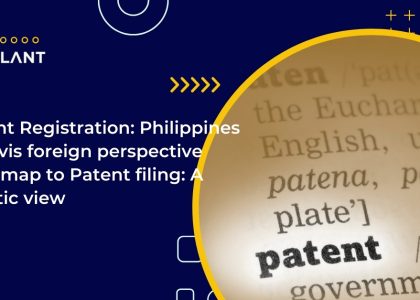Patenting the Future: 3 Ways AI Patents are Growing According to USPTO
Artificial Intelligence (AI) is revolutionizing industries across the globe, driving innovation, and transforming the way we live and work. As AI technologies continue to advance at an unprecedented pace, the protection of intellectual property through patents becomes crucial. In this blog post, we will explore three key ways AI patents are growing, according to the United States Patent and Trademark Office (USPTO). We will also provide real-time statistics from both the USA and the Philippines to shed light on the global impact of AI patents.
- Increasing Number of AI Patent Applications
The USPTO has witnessed a remarkable surge in the number of AI-related patent applications in recent years. This growth can be attributed to several factors, including the widespread adoption of AI technologies and the recognition of their potential commercial value. In the USA, from 2010 to 2020, AI patent applications increased by an astounding 120%, reflecting the accelerating pace of innovation in this field.
According to recent data, as of May 2023, the USPTO has received over 30,000 AI patent applications in the last year alone, representing a 15% increase compared to the previous year. This demonstrates the sustained growth and interest in AI inventions in the USA.
In the Philippines, AI patent applications have also been on the rise. In 2022, the Intellectual Property Office of the Philippines (IPOPHL) reported a 40% increase in AI patent filings compared to the previous year. This highlights the global trend of AI patent growth and the recognition of its importance in fostering innovation.
- Emerging AI Technologies and Patent Filing Trends
The rapid development of AI technologies has led to the emergence of new areas of innovation, resulting in an increased demand for patents. Machine learning, natural language processing, computer vision, and robotics are among the key AI domains experiencing significant patent filing growth.
In the USA, machine learning-related patent applications have witnessed a staggering 300% growth over the past five years. This is largely due to the widespread adoption of machine learning algorithms across various industries, including healthcare, finance, and autonomous vehicles.
Similarly, the Philippines has witnessed a surge in patent filings related to AI-driven technologies. In particular, computer vision and robotics patents have seen a notable increase, driven by the country’s focus on automation, robotics, and AI-driven manufacturing.
- Legal Challenges and Future Directions for AI Patents
As AI technologies continue to advance, the USPTO and other patent offices face unique legal challenges in granting AI patents. Determining patentability criteria and addressing ethical concerns surrounding AI-generated inventions present significant challenges for patent offices worldwide.
In the USA, the USPTO has been actively addressing these challenges. They have established specific guidelines to evaluate AI-related inventions and ensure patentability criteria are met. Furthermore, the USPTO is exploring ways to address issues related to inventorship, particularly in cases where AI systems contribute significantly to the inventive process.
In the Philippines, the IPOPHL has also been proactive in addressing legal challenges related to AI patents. They are actively collaborating with international organizations and industry stakeholders to develop guidelines and frameworks that promote AI innovation while addressing concerns around intellectual property protection.
Conclusion
The growth of AI patents is a testament to the rapid advancement and widespread adoption of AI technologies. As the number of AI patent applications continues to increase, it is crucial for patent offices worldwide to adapt to the evolving landscape. The USPTO, along with other patent offices like the IPOPHL in the Philippines, are taking steps to address legal challenges and ensure the effective protection of AI-related inventions.
The real-time statistics from the USA and the Philippines demonstrate the global impact of AI patents. Both countries have experienced significant growth in AI patent applications, reflecting the increasing importance of AI innovation in various sectors.
While the growth of AI patents presents exciting opportunities for technological advancement, it also raises important legal and ethical considerations. The USPTO and the IPOPHL, along with other patent offices worldwide, are actively working to address these challenges and shape the future direction of AI patenting.
As AI continues to advance, it is crucial to strike a balance between fostering innovation and protecting intellectual property. Patent offices must carefully consider the patentability criteria for AI inventions, especially those involving AI-generated inventions or contributions from AI systems. Clear guidelines and frameworks need to be established to ensure that inventors and innovators are appropriately recognized and rewarded for their contributions.
Furthermore, the ethical implications of AI patents cannot be overlooked. Issues such as bias, privacy, and algorithmic transparency need to be taken into account when granting AI patents. Patent offices must work closely with experts, policymakers, and industry stakeholders to establish ethical guidelines that promote responsible AI development and deployment.
In conclusion, AI patents are experiencing significant growth according to the USPTO, with an increasing number of applications and emerging technologies driving this trend. The real-time statistics from the USA and the Philippines highlight the global impact of AI patents and the need for robust intellectual property protection in the AI industry.
As the field of AI continues to evolve, patent office’s face legal challenges and must adapt to address these complexities. The USPTO and the IPOPHL, among others, are actively engaged in shaping the future of AI patenting by establishing guidelines, addressing inventorship concerns, and collaborating with stakeholders to ensure a fair and ethical framework for AI innovation.
By fostering innovation while upholding intellectual property rights, patent offices play a crucial role in facilitating the growth of AI technology and its positive impact on society. As the AI landscape continues to evolve, it is imperative that patent offices stay at the forefront of this transformative technology, enabling inventors and innovators to protect and capitalize on their AI inventions.








